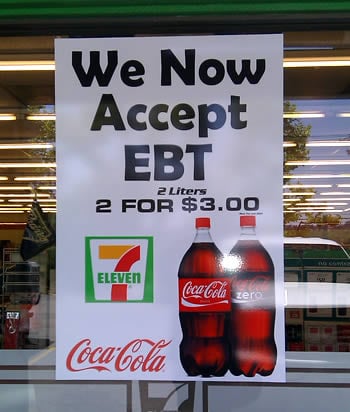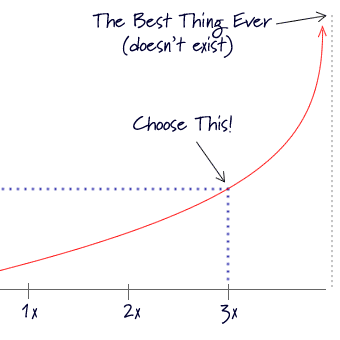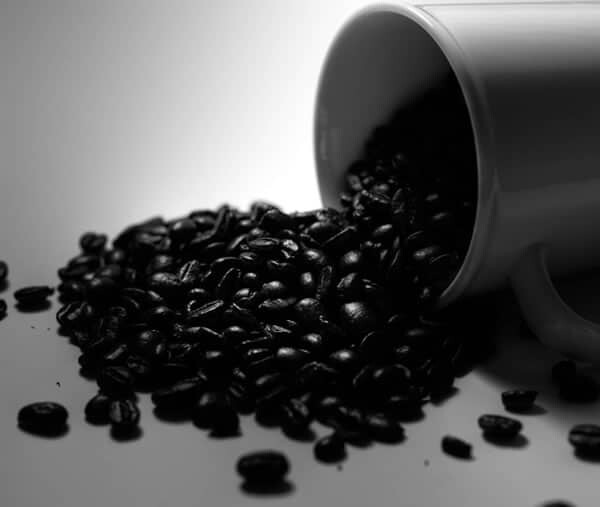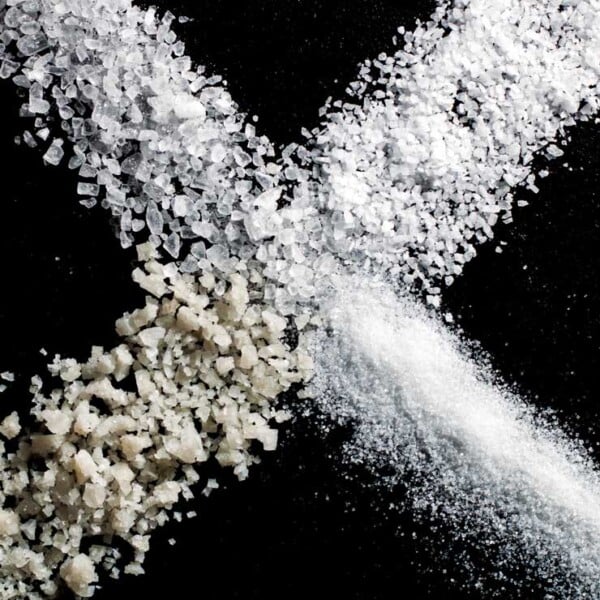Food stamps for soda
Aug 26, 2011, Updated Sep 20, 2018

The Supplemental Nutrition Assistance Program (“SNAP”, formerly called “Food Stamps”) serves nearly 46 million Americans a year. That means about one in seven Americans are now getting government assistance to buy food through this program (the number has been climbing steadily, up from about 27 million around this time in 2007).
The average monthly benefits per person are now $133.80. Multiply that out and it means we’re spending over $65 Billion a year on SNAP (and the numbers are growing every month: It’ll be over $70 Billion for 2011).
I’m certainly not opposed to ensuring that nutritious food is available to every person, but it sure seems to me that the entire SNAP program is a band-aid, not a solution to the underlying issues. But that’s a topic for another time.
The part that I am opposed to? Of that $65 Billion, about $4 Billion goes to buy soda and other sugar-sweetened beverages.
So first we subsidize the production of corn, which allows us to produce high fructose corn syrup at an incredibly low cost. Then we turn it into nutritionally-devoid sugar-water, and give people money to buy the stuff. About half of that money goes back to the manufacturers — so we’re subsidizing these companies on both ends, and all the while we’re in the middle of an obesity and health crisis!
It just doesn’t make sense.
Last October, New York asked the USDA (which administers the SNAP program) to try an experiment. They wanted to disallow the usage of SNAP benefits for purchasing sugar-sweetened beverages.
A few days ago, the USDA rejected their request. The primary reason? “Too complex.” (I’m paraphrasing). Their rejection letter [PDF] does go on to make some valid points, but in my opinion, none of them should have been dealbreakers.
It’s important to note that there are already other limits on what can be purchased with SNAP benefits (alcohol, cigarettes, foods that will be eaten in the store, and more). Many of the rules don’t make much, if any, sense from a nutritional standpoint. For a great first-hand example of this irony, read this incredible story of Chicken vs. Twinkies from Kimberly at Poor Girl Eats Well.
I also dug up this 2007 PDF, in which the USDA makes their case against restricting the use of food stamp benefits. So it seems the USDA had already dug their heels in on this issue awhile back — and still took nearly a year to reply to Mayor Bloomberg’s request.
Interestingly, in their rejection letter, they point out that they prefer incentive-based solutions, and specifically reference a pilot program in Massachusettes that “increases SNAP benefits when fruits and vegetables are purchased.” (Great!). Implementing an incentive program such as that sounds about as complicated as the one Mayor Bloomberg proposed — which pretty much invalidates their “it’s too hard!” argument.
Moreover, the USDA also administers the excellent Women, Infants, and Children (WIC) supplemental nutrition program. WIC participants “receive checks or other vouchers to purchase specific foods each month that are designed to supplement their diets with specific nutrients.”
It’s a worthy list, and includes “infant cereal, iron-fortified adult cereal, vitamin C-rich fruit or vegetable juice, eggs, milk, cheese, peanut butter, dried and canned beans/peas, and canned fish. Soy-based beverages, tofu, fruits and vegetables, baby foods, wholewheat bread, and other whole-grain options were recently added to better meet the nutritional needs of WIC participants.” (Source, PDF)
So it seems the USDA is talking out of both sides of its mouth. They claim that they don’t have the ability to restrict what food stamps should be used for (even though they already do have some restrictions), and that it wouldn’t be effective anyway. On the other side, they administer the WIC program, quite effectively, which does exactly that.
(In case you’re wondering, in 2010 the WIC program, which is funded differently than SNAP, had about 9 million participants, at a total cost of about $6.7 Billion.)
Obviously, this one change proposed by New York would not have been enough to combat obesity in America on it’s own — that’s just silly. The USDA points out that it might not have a significant impact (or even could have some negative impacts). But when the negative impacts of sugar-sweetened beverages are already so well-known, it sure sounds like lunacy not to at least try it.
Considering that it’s supposed to be “Supplemental Nutrition Assistance,” and that soda has no nutritional merit whatsoever, I’m really struggling to see any valid reason why people participating in SNAP should be allowed to use their benefits to purchase it.
What do you think?
—
I tried to keep this post brief, since this topic is already being covered quite well. I recommend reading these excellent articles by Megan Cottrell, Tom Laskawy, and Andy Fisher for more.
Want to hear something positive about SNAP? Recipients can use their benefits to to buy seeds and plants which produce food to eat. Nice.
Photo courtesy of The California Center for Public Health Advocacy, on Twitter at @CCPHA.




















This is off point, but I have to disagree about Oreos tasting good. I do know people who do like Oreos, but they’re like 9 years old.
Oh Andrew I am with you all the way! here I am actually spending more money for my healthy food while there are obese people in line with their chunky kids getting free Oreos whom I will also have to eventually pay for their free healthcare down the road. I think beer could be considered a form of food. It is quite filling and does have more nutrition than soda 🙂 I also think that if anyone is given government assistance they should undergo a drug test.
Just because Oreo’s taste good does not mean its junk compared to dole’s peach chunkes in syrup
The author did not tell the complete story, bloomberg would ban any drink with more than 10 calories of sugar , including gatorade, vitamin water, lemondade, and many other drinks, but not shakes,juices
calling it a “soda ban” is misleading when diet soda would be allowed,
the problem with soda is sugar excess sugar,same with white bread, yet it is a food, fruit juices have been linked too, but no mention.
I completely agree about fruit juice being a problem, as well as any other refined products (sugar, white flour, etc.).
Nothing’s perfect, so it becomes a question of where we draw the line. 100% Fruit Juices do have some redeeming qualities over other sugar-sweetened beverages (namely: naturally-occurring vitamins), but hardly in quantities to justify calling them a serving of fruit.
Nevertheless, I still believe that disallowing the use of SNAP benefits to purchase the worst offenders (sugar-sweetened sodas, gatorade, etc.) is a good place to start.
I also completely agree that diet soda should not be allowed, either — it has no nutritional benefits either.
It’s supposed to be the Supplemental Nutrition Assistance Program, so the items it helps provide should have nutritional benefits. Soda, both diet and regular, have none.
It can’t be a good start if there is no end , and singling out one product over the other is bad politics, would vitamin water be allowed since it has nutritional value, also sugar is food.
Just because there’s no clear “end” point doesn’t mean we can’t try to find one. We can’t let “perfect” be the enemy of “good.”
We require seatbelts in cars, but we don’t also require people to wear helmets while driving. We draw the line there because that strikes a reasonable balance between inconvenience and safety. Something similar could be done with “supplemental nutrition.” WIC already does this, having determined which foods are appropriate supplemental choices and then providing only those.
I’ll agree that it’s significantly more challenging to find the balance for food than for seatbelts — but that difficulty alone isn’t a good enough reason not to try.
Wic is a meal plan for infants and children, teenagers and adults have varying diet plans, you wouldn’t expect a miner or a courier or a bike messenger. to eat wic food with few calories, on the other hand a secretary maybe.
Also soda is food, sugar, just like butter excess is bad.
The naturally occurring is a unsettled debate as many foods have additives and are fortified, however in this sense its a cover, most advocates for soda taxes hardly consider juice taxes,
Which healthy rewards card, soda is food, alcohol is not, butter is food, its the excess fat and sugar that makes it bad, nfl and gatorade
Why do you consider soda to be food, but not alcohol? I think an argument could be made that both (or neither) should be considered
“Food.” What’s your criteria?
Sugar is food, just like fat and butter.
In all seriousness, beer is food — it’s like a liquid loaf of bread. True fact: the slaves who built the pyramids in Egypt were given beer as sustenance.
There is a debate about whether alcoholic beverages are food, since the way it is broken down, its more about public policy
Why do you consider soda to be food, but not alcohol? I think an argument could be made that both (or neither) should be considered
“Food.” They both contain calories. What’s your criteria?
I went in to a Rite Aid a couple of weeks ago and bought a bottle of Captain Morgan’s Spiced Rum and a 2 liter Coke. The lady behind me asked me if I had my Healthy Rewards card. I smiled and asked if the Healthy Rewards covered booze and soda. She said not the booze, just the soda. She couldn’t even say it without laughing.
The SNAP program is designed for folks to independently cook meals, unlike WIC, SNAP is broad based, you cannot compare SNAP to WIC, because WIC is not designed for those with diverse lifestyles, a blue collar construction worker on foods or somebody who atleast does not have a completely sedentary lifestyle should not be denied soda,juice,etc The USDA was right to reject the ban, why allow sugary juices/dairy and not anything else, its true that soda has little else than sugar, but its no different than many other foods, and vitaminwater has added nutrients but folks usually don’t need it. Take a taco for example, sour cream,chips,unlean beef,cheese,etc is a high calorie food, however its fine for certain occupations, the taxpayer argument is ridiculous do we restrict what public employees can purchase with the money,doughnut v. bagel with cheese for example is a classic example on how propaganda is used,… Read more »
I am also on the “Snap” program and although I greatly appreciate the states’ help in feeding me and my kids, I do agree there needs to be more education. The only nutritional help I have ever recieved is in a nutrition class I am currently taking. I had no idea how poorly I was feeding my children and I am currently trying to correct years of bad habits. I wonder how many people out there are in the same position as me.
Two news stories came through my inbox this morning that are relevant to our discussion here. Worth the read:
More Americans Hungry For Food Stamps (via NPR)
The Cultural Reasons America’s Underprivileged Struggle With Nutrition (via HuffPo/AOL)
I know a lot of people worry about big brother telling them what to do but I feel like if you are going to take public assistance, there should probably be some strings attached to that. These programs are supposed to be temporary assistance, not a permanent solution, right? I also think that part of the program – SNAP, WIC, etc. – should be education. Just my 2 cents…
This is a great point. To illustrate, let’s say I live large, party a lot, sleep late, don’t do housework, etc. Then I lose my job, am down on my luck, and have to move back in with my parents until I get back on my feet. I’m relying on their support, in their house, so I have to live by their rules (no partying, I have to do chores, etc.). If I don’t like it, then that’s all the more incentive for me to get back to supporting myself. Same goes with government welfare programs. There is absolutely nothing wrong with telling people how they can and cannot spend money they receive from the government. If they don’t like it, then that’s more incentive to get off welfare.
I get your concern – and I admit that I’m really conflicted on this issue. But the thing is, this is about the 78th in a LONG line of strings attached to receiving benefits. If this string disappeared, there would still be an immense tangle of strings in place that have to do with assets you’re allowed to have, residence, etc. My internal conflict goes like this: Like others have said, it is really paternalistic to assume that folks who aren’t on SNAP/WIC/other assistance are so self-actualized that they get to pull all of the strings that exist and add more every time new health information comes out. If a person on SNAP wants to have a beer at the end of a long-ass day at work, they should have as much right as I do. I’m a volunteer in an AmeriCorps-like program that, up until last year, received a… Read more »
Exactly, it is paternalistic , WIC for instance is paternalistic its for children and infants not an adult, as an corps volunteer should you have the same diet as a secretary, absolutely not,
Hey folks, we are going to a host a taxpayer funding sports game,
awesome, let’s get the gatorade, oh wait, no, it has sugar, but we can give the fruit juices with 3x the sugar. Sound ridiculous
it is, sugar is food, it gives energy, carbs break down into it,sugar is necessary for survival, no sugary drinks may not be the best way to get needs and calories but it is food, one issue not discussed is convenience stores and selling those items, given that to be a retailer you need to sell staples.
This:
‘We ALL receive public assistance in some way, shape, or form.’
I think telling poor people how to spend money is paternalistic and disrespectful; it’s like giving a street person a hand out and then telling them “now don’t spend it liquor.” You are not their mother, they are free adults, and it’s none of your business how they spend money, even when it’s food stamps, and therefore somehow yours rather than theirs.
Further, if you’re going to restrict “junk food” from food stamps, you might as well restrict all processed foods, since there isn’t all that much difference between a coca cola and jar of cheap grape jelly, or worse, a “Lunchable” child’s meal these days, as far as nutritional value goes.
The difference is taxpayer funds are being used, but yes junk is hard to define, for instance is mott’s apple sauce or dole’s syrup better than soda, no.
I am so sick of that logic. It’s not taxpayer money, don’t you see? Once you use that money to fund something IT CEASES TO BE YOUR MONEY. And yes, I’m with Xan, how someone spends their money, however they got it, is none of your business.
If someone says to me, “I am hungry and have no money to feed my family”, and I give them $20 for food, I darn well have the right to be pissed if they use it on soda, despite the fact that it is no longer mine once I give it away.
Saying something is taxpayer money does not mean it belongs to an individual, but to the collective “taxpayer” who has the right to vote and decide how the money should be spent. If there was a vote up for whether my kids’ school should get more funding or whether Mrs. Lazypants down the street should get soda, I vote for the money to go to the school.